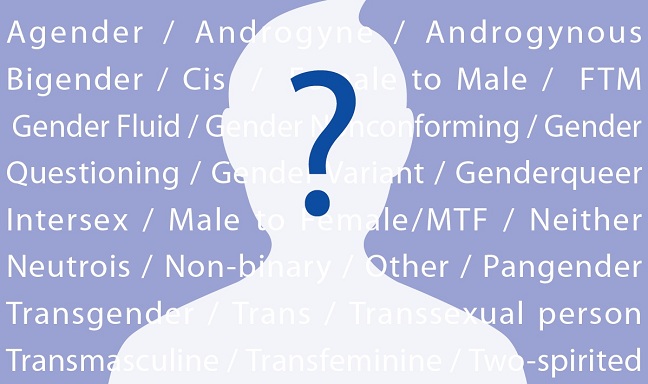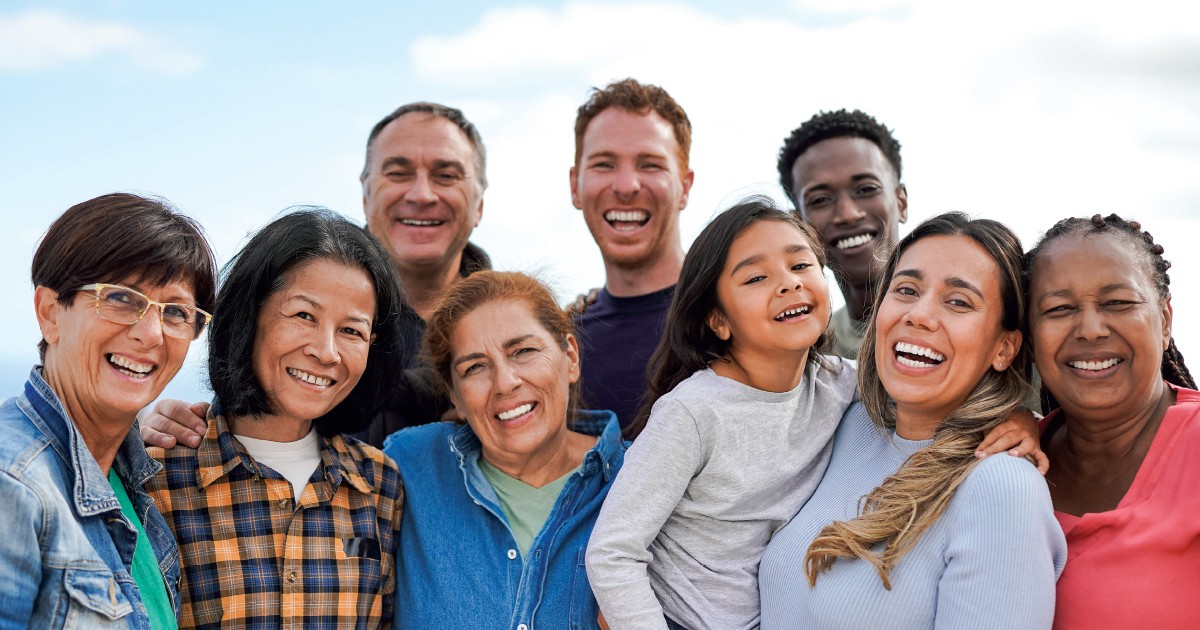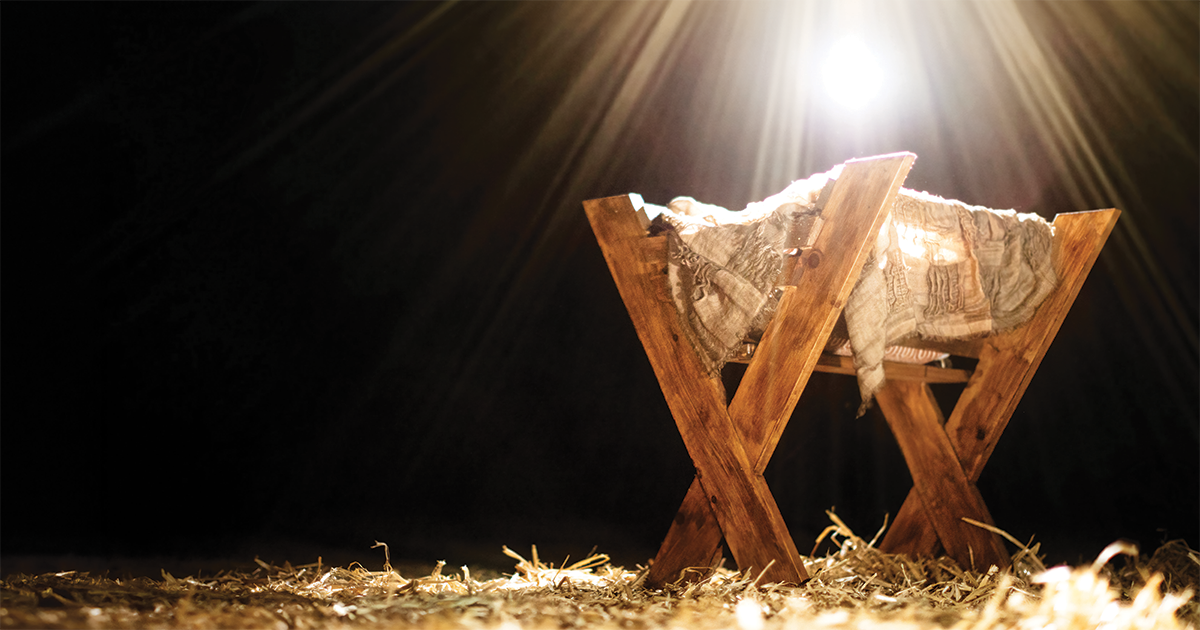
 In their Talking It Over series, Dr. James Read, director of The Salvation Army Ethics Centre in Winnipeg, and Dr. Aimee Patterson, Christian ethics consultant at the centre, dialogue about moral and ethical issues.
In their Talking It Over series, Dr. James Read, director of The Salvation Army Ethics Centre in Winnipeg, and Dr. Aimee Patterson, Christian ethics consultant at the centre, dialogue about moral and ethical issues.
DEAR AIMEE,
The other day I was updating my personal information on the datasheet of a professional association I belong to, and for the first time I was asked whether I was female, male or other.
In the past I've questioned why professional associations ask to know the sex of their members. On surveys I often answer, “prefer not to say,” or I simply skip the question because I don't see the relevance. Why does it matter to an association of philosophy professors whether I am a man or a woman? Or I guess my real feeling is, “It shouldn't matter to them.” So I don't tell them.
But to be given the option of “other” seems to raise questions of a different order. Do you have a sense of what's going on here?
Grace and peace,
JIM
DEAR JIM,
I agree with you that my sex bears no relevance upon my membership in a professional society. It's relevant to which public washroom I walk into.
But it wasn't long ago that Facebook made the news by introducing a variety of new gender options—more than 50. Perhaps I should say that what made the news was the reaction by various news media and commentators.
In courses on sexual ethics, we're taught that sex and gender are distinct from one another. Sex is a biological term and gender is connected to identity and expression (whether chosen or imposed). For a long time, though, we've thought sex and gender to be inherently linked: biological males behave in masculine ways and biological females behave in feminine ways. This link has been strong enough that the two terms, sex and gender, have been used interchangeably.
But society is changing. Many people no longer see these terms as neatly linked together. And many people no longer regard sex and gender as binaries, hence the “other” on your application form. The popular model is that both sex and gender exist as spectrums. Perhaps it's true that sex naturally exists as a spectrum: there are intersex people, formerly called hermaphrodites. Unfortunately, when babies are born with ambiguous genitalia—an occurrence one of my professors dubbed a “social emergency”—this is often “remedied” by swift surgical means.
I'm still working out the notion of gender existing as a spectrum. I have compassion toward those who don't identify in the way they believe society has imposed on them.
But I think there's a broader question in play, Jim. When someone inquires about my sex or my gender, why are they interested in learning about my biological sex features and/or how I identify and express my gender? Why are we so obsessed with sex and gender these days?
Grace and peace,
AIMEE
DEAR AIMEE,
In some ways it's not a new “obsession” at all, is it? I think it's been almost universal. Old Sigmund Freud taught that sex was at the core of being human. In the opening pages of the Bible, the solution to human solitariness is found in the creation of a couple differentiated on the basis of their sex. Sexual disguise motivates many of Shakespeare's works. I could go on.
But you know all that. So I suppose you may really be asking why we aren't over it yet. When it comes to having a job Or having a say, why is a person's sex still treated as relevant?
I was re-reading Catherine Booth's Female Ministry the other day. Writing about women preaching, Booth said, “We admit that want of mental culture, the trammels of custom, the force of prejudice, and one-sided interpretation of Scripture, have hitherto almost excluded [women] from this sphere; but before such a sphere is pronounced to be unnatural, it must be proved either that woman has not the ability to teach or to preach, or that the possession and exercise of this ability unnaturalizes her in other respects … Why should woman be confined exclusively to the kitchen and the distaff, any more than man to the field and workshop?”
That was 1859—155 years ago! Your comments tell me that you still face discrimination simply because you're a woman. That's plain wrong. The sooner it stops, the better.
But I think the sex versus gender talk is about something different. And I'm not sure what.
It's interesting to me that you said the idea of a spectrum of gender was new. I grew up with “boy” and “girl,” but also with “jock,” “chick,” “tomboy” and “macho.” I knew girls who liked climbing trees and boys who preferred reading to hockey. We treated exhortations to be “a man's man” or “a real woman,” as a bit of a joke. There was no “two-sizes-fit-all.”
However, I don't think I heard the word “transgender” until I was an adult. And I am sure no one told me they felt that they were a boy trapped in a girl's body, or a girl trapped in a boy's body. Now, according to a recent Maclean's article, it's a reality for up to three percent of the population. How agonizing, don't you think?
Grace and peace,
JIM
DEAR JIM,
Agonizing, yes. And confusing for most of us. This current version of “gender shaping” seems to be still in flux. I think it's an important thing to observe. I want to be discerning about gender identity and expression, much like Booth's discerning in 1859 that undue limitations were put upon women to actualize their own ministry potential. She did something about it in order to produce a more just Salvation Army.
I wonder if The Salvation Army in the western world is as effective today in achieving justice for all sexes and genders. I think about our women's ministries and their corresponding leadership positions. The question must be asked: In an age of diversity and equality, how are these appointments perceived? Has any male officer spouse ever been offered an executive position by default because his wife was highly sought after for leadership of women's ministries? At one point in time, leadership in women's ministries might have represented the great need to engage women to be active in ministry. Today, does women's ministries offer the same opportunity for marginalized voices to speak out?
If you look at the women's ministries page on the Salvation Army's international site (salvationarmy.org/ihq/womensministries), you'll see that women first play a “vital and definitive role” in the home and family. Second, because women are “natural providers of hope” (I'm not sure how that was determined), women are able to help shape society. What once might have seemed a rallying statement now seems antiquated and, ironically, limiting of women's ministries.
Today I think there is reason to ask whether women's ministries programming is too narrow in its focus, at least in our territory. The home league's original mandate was to encourage ministry originating from the home. Today, the gender expression of a large segment of women means they spend the majority of their time outside the home at a place of employment. Is this program as effective as it once was in engaging women in ministry? Booth asked why women should be confined to the kitchen and the distaff. It seems like many Salvationist women have taken her up on her challenge.
The “gender blending” going on in society puts us in a time and place ripe for detailed examination of our ministries. I'm led to ask, why does The Salvation Army have women's ministries at all? True, there are occasions when it is appropriate for a female to minister to another female, or a male to a male. But does this mandate a separate, organized ministry that excludes men? If justice is the concern, why not generate a social justice ministry focused on the marginalization and abuse of women at home and around the world? Both women and men concerned with these issues could be active in such a ministry.
As always, thanks for the dialogue,
AIMEE










It only takes Faith to love and accept with dignity those who are like us and whom we like! It takes a special Christian Character to 2'love our enemies' and act WITH OUT DISCRIPTION in any way, to those who we don't yet clearly understand what God's mission is in creating them and serving Him.
Grampa Dave Connell